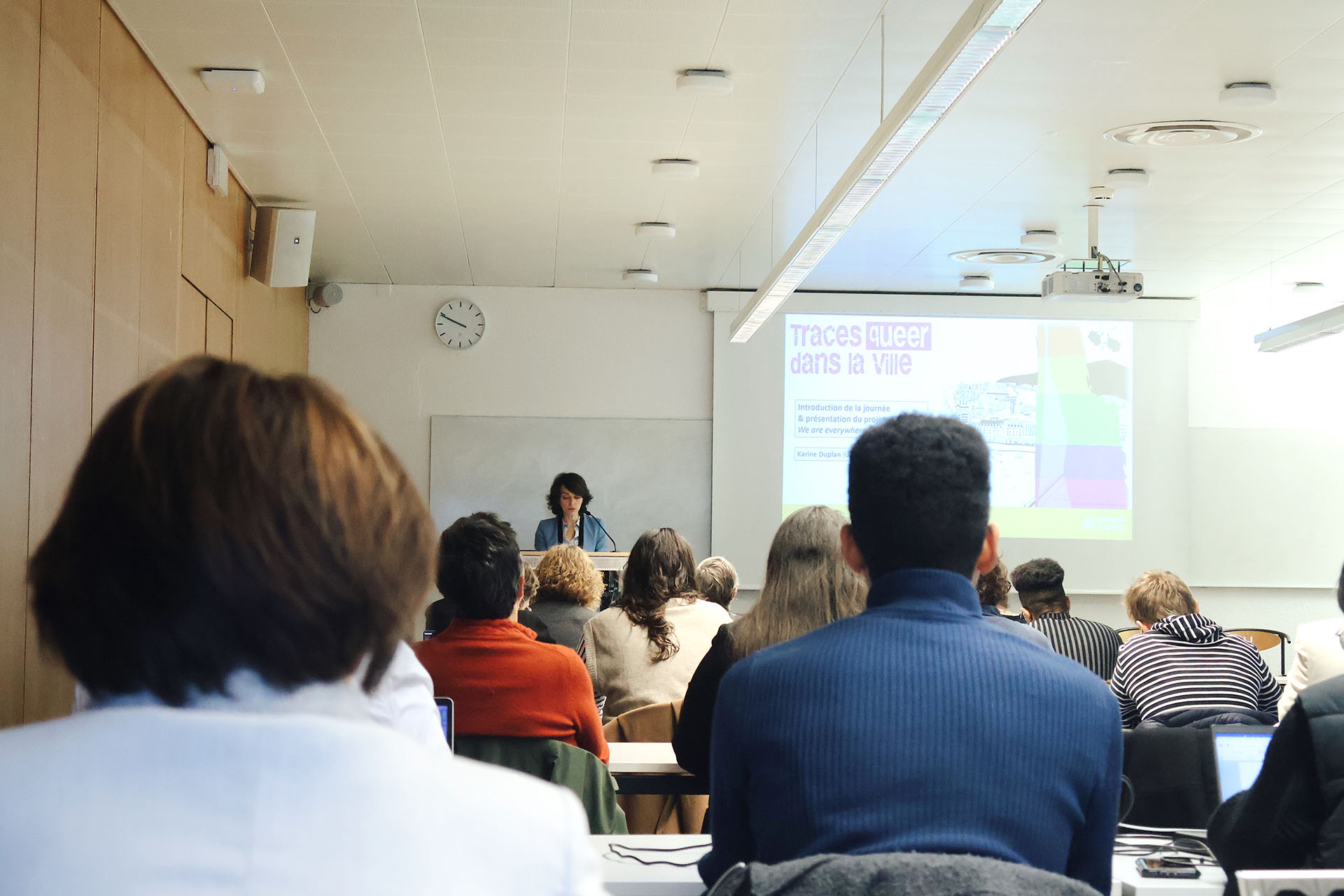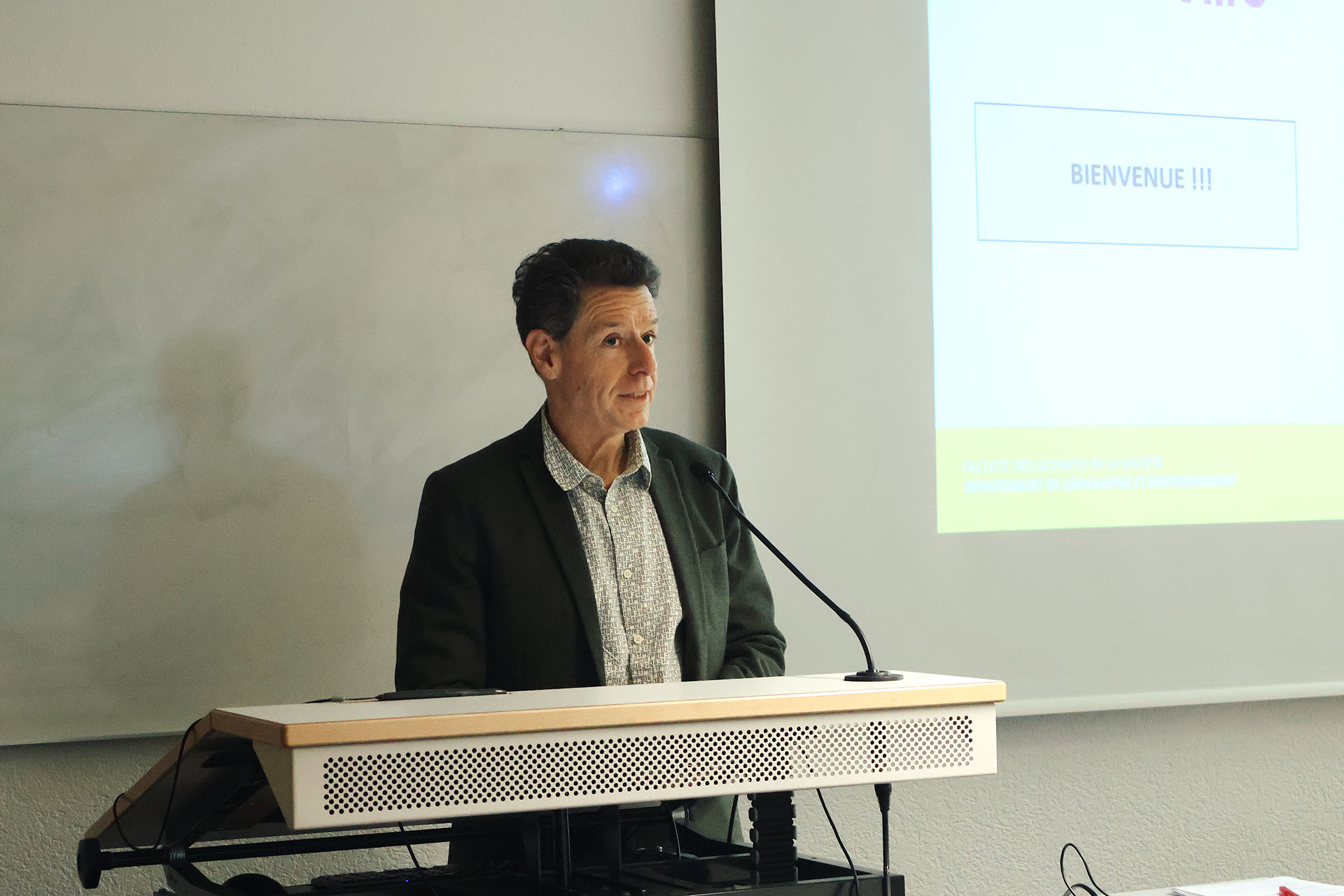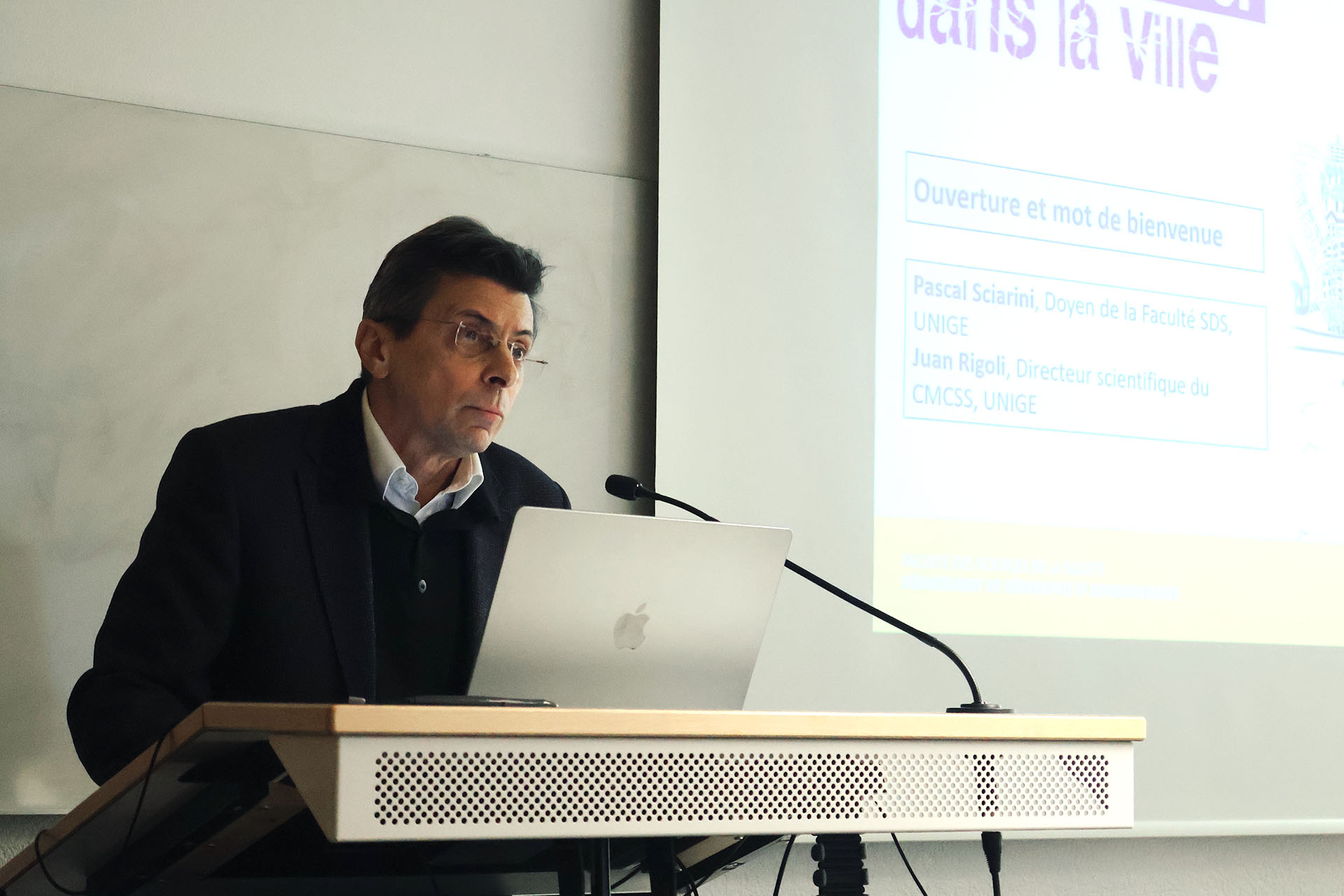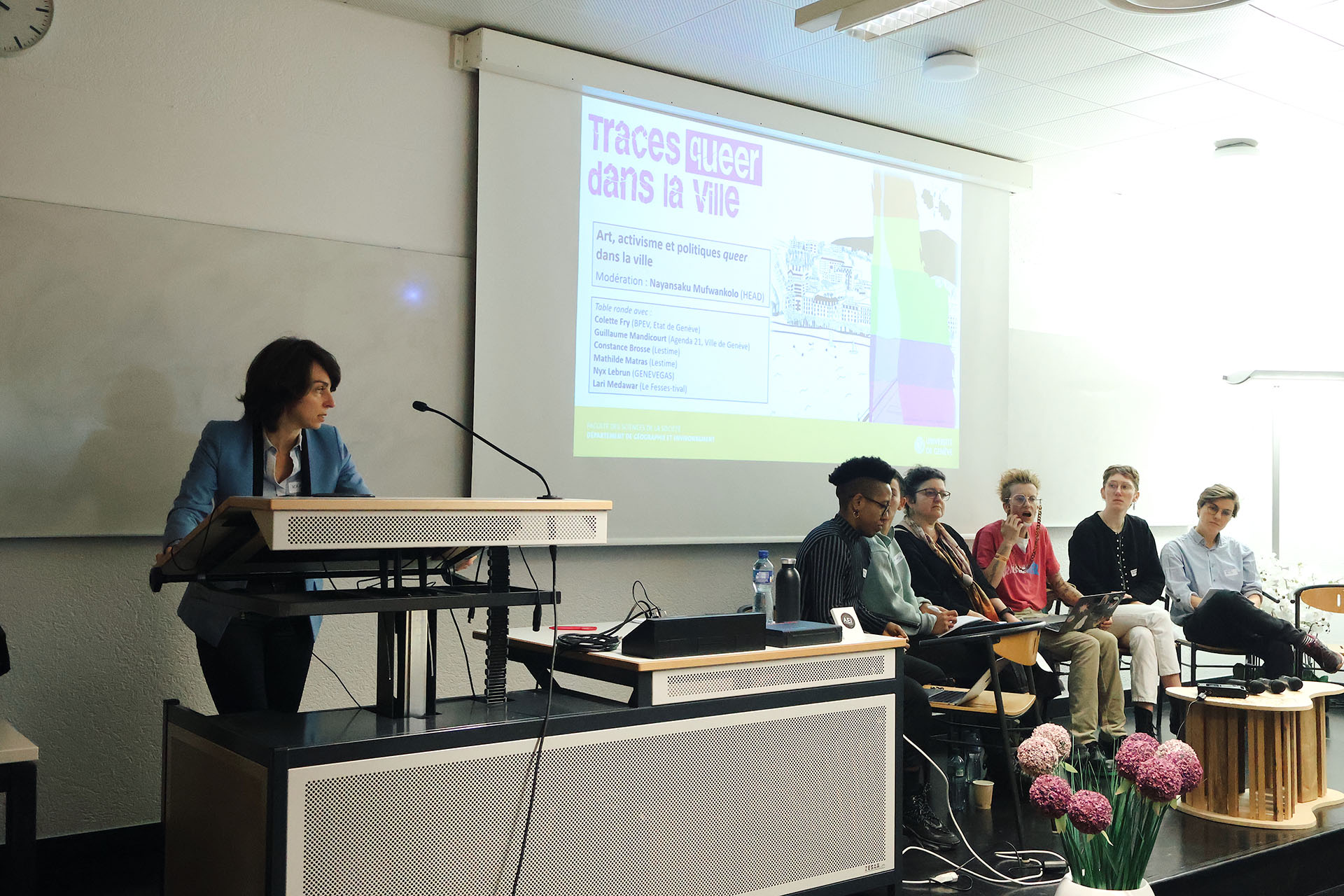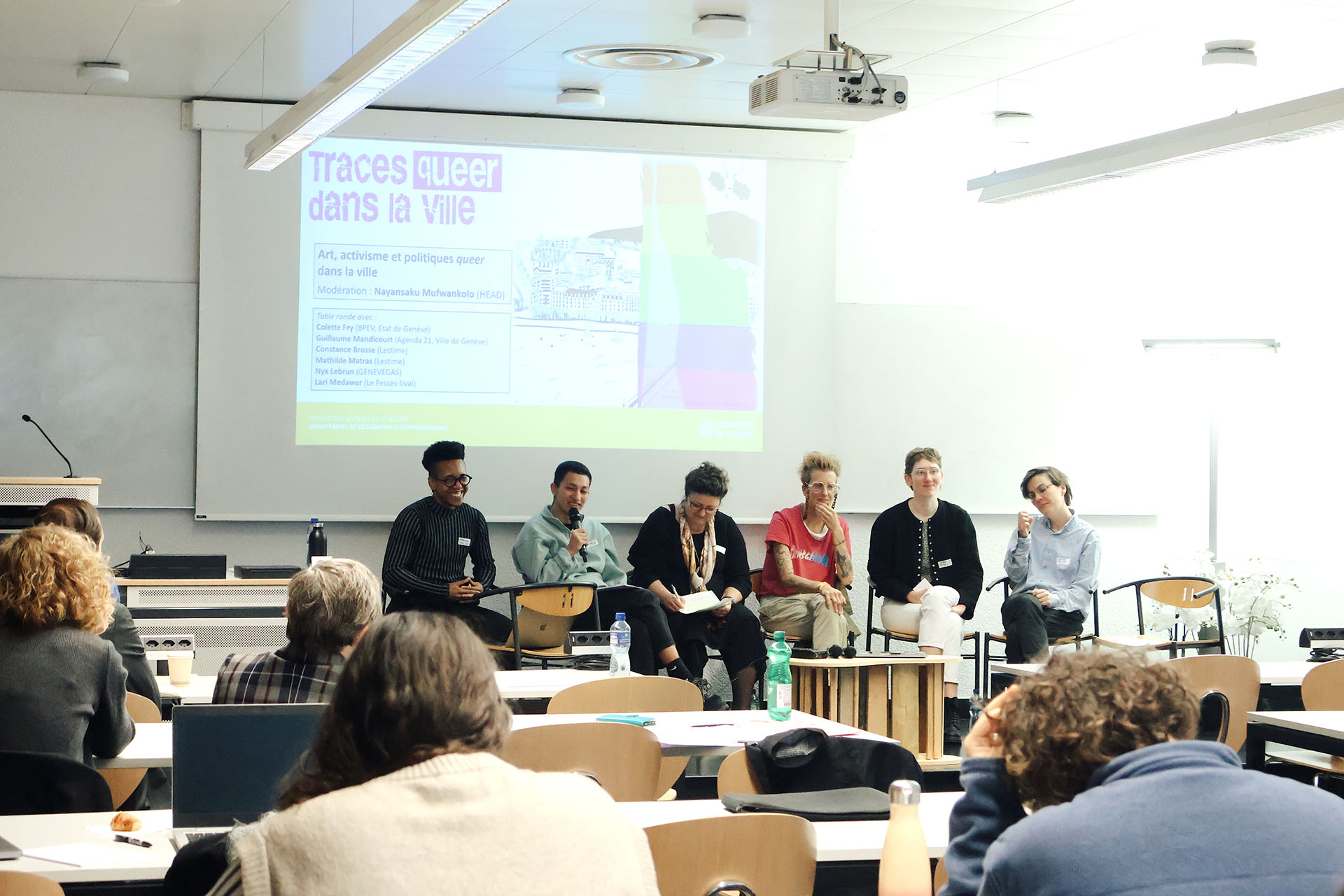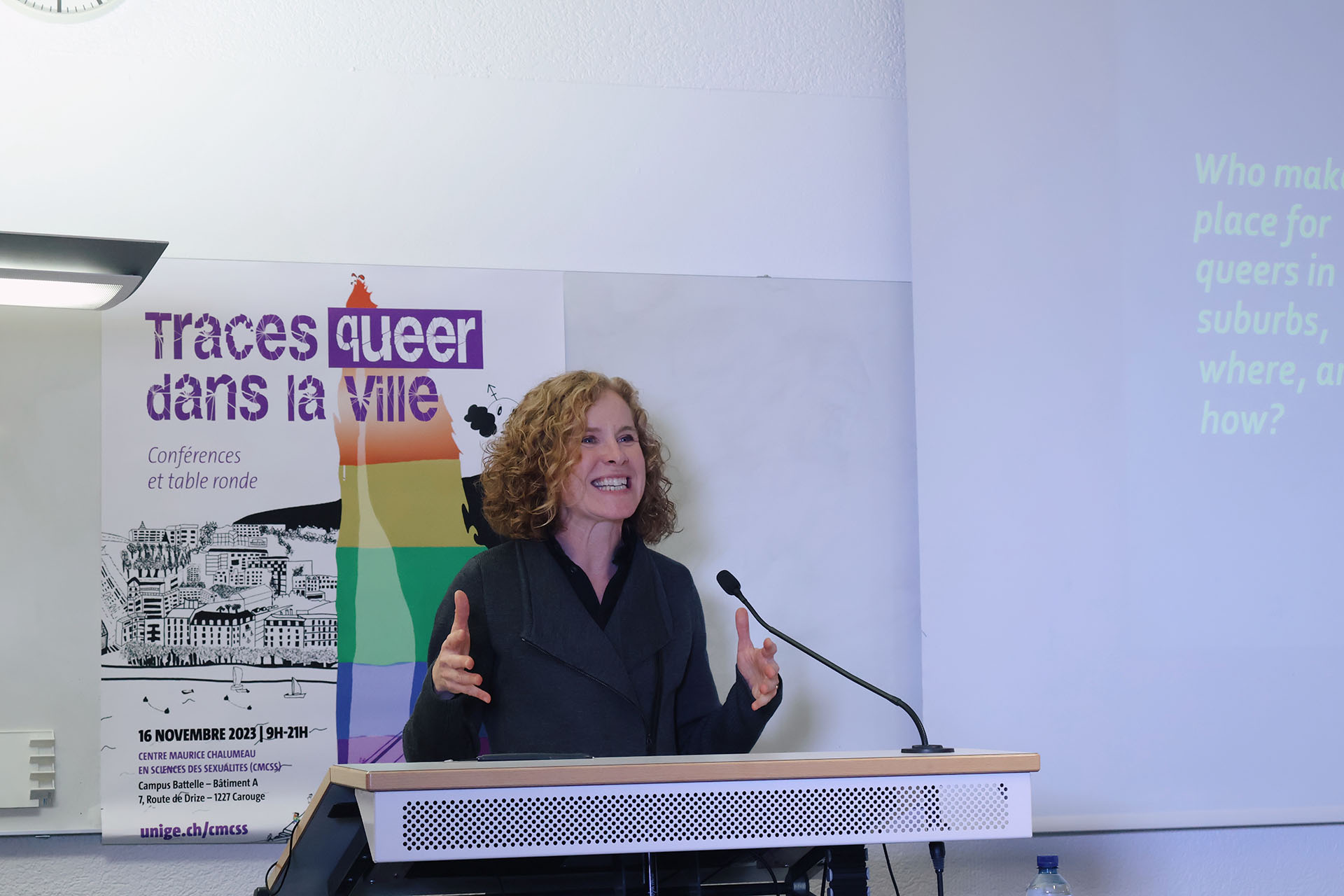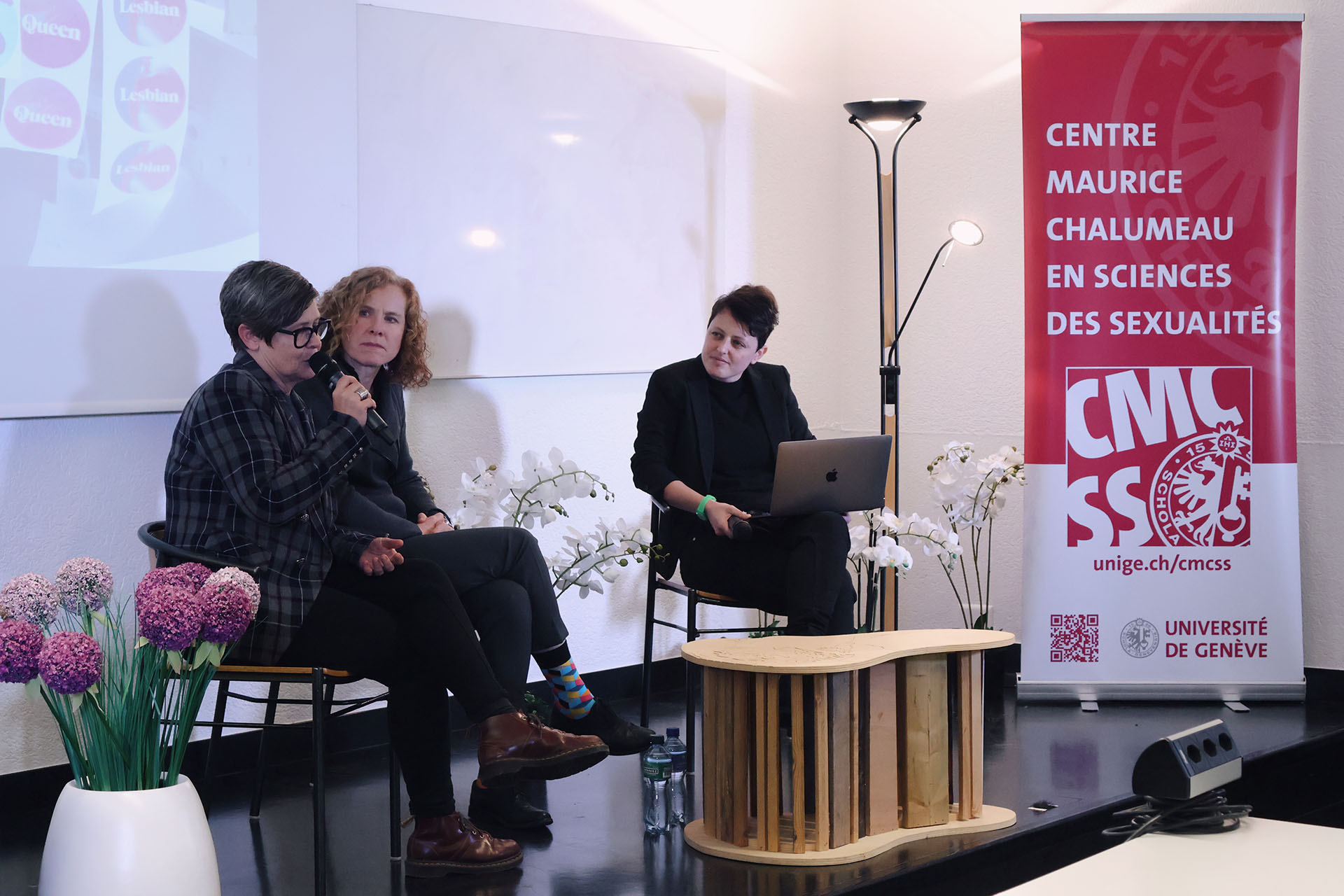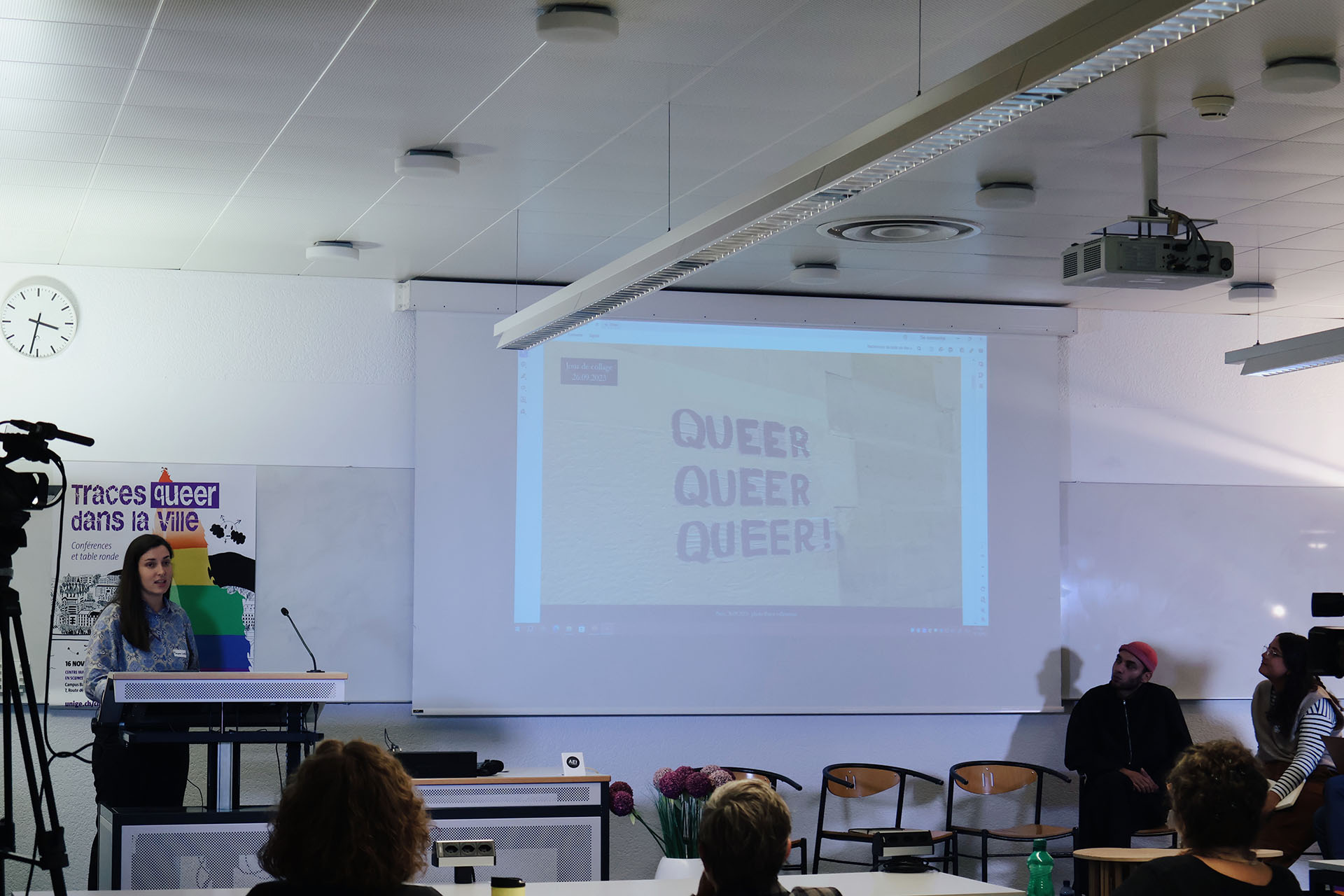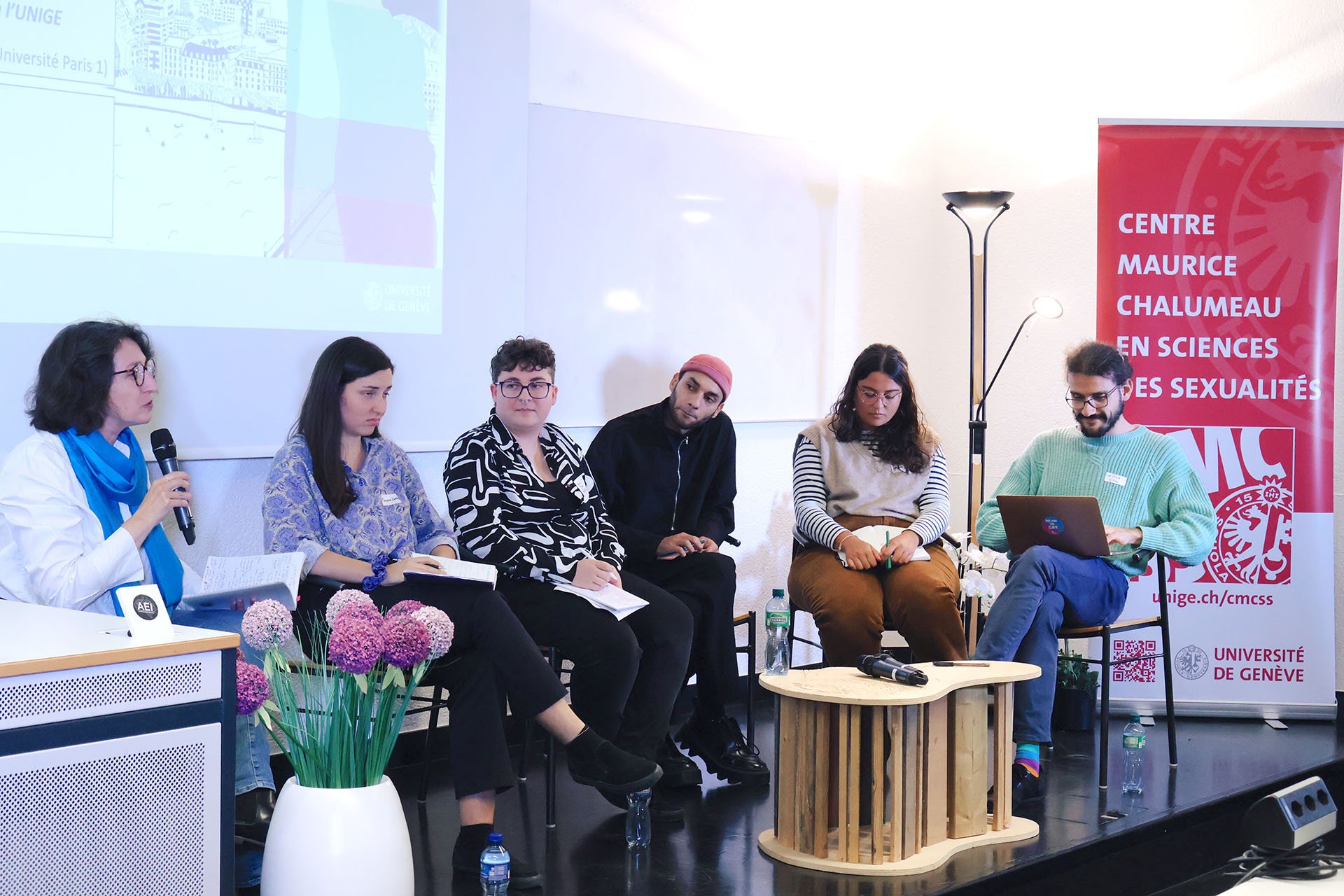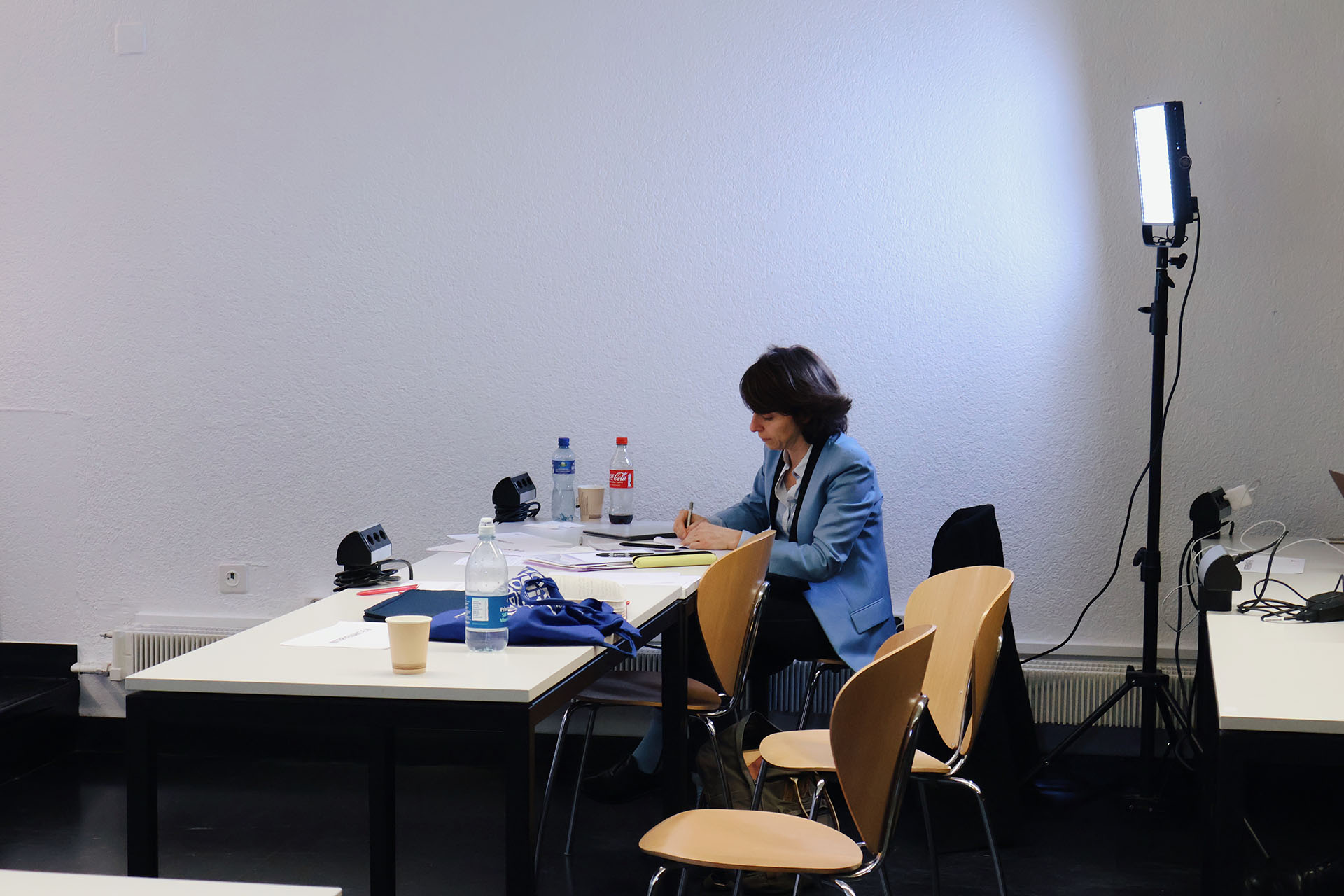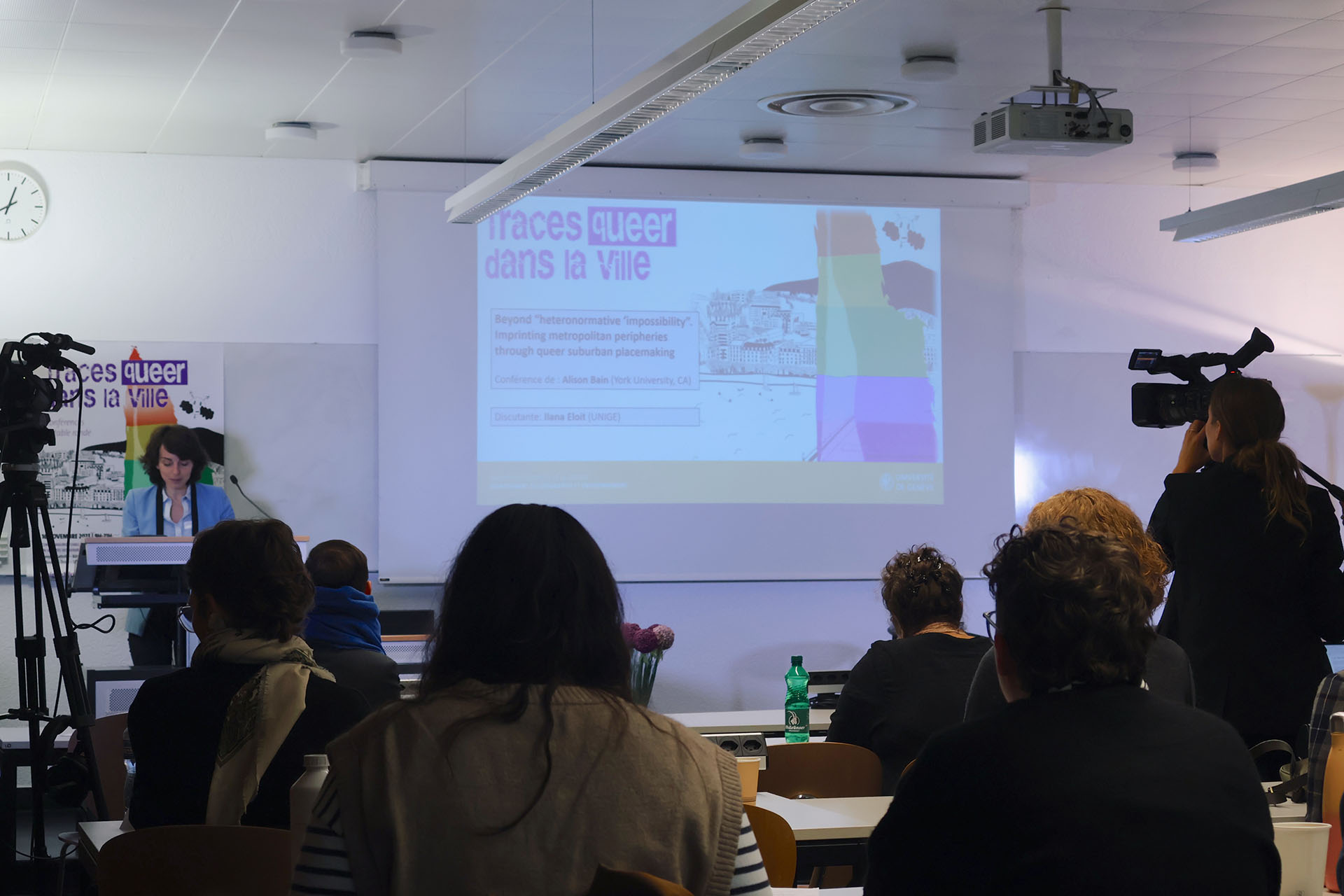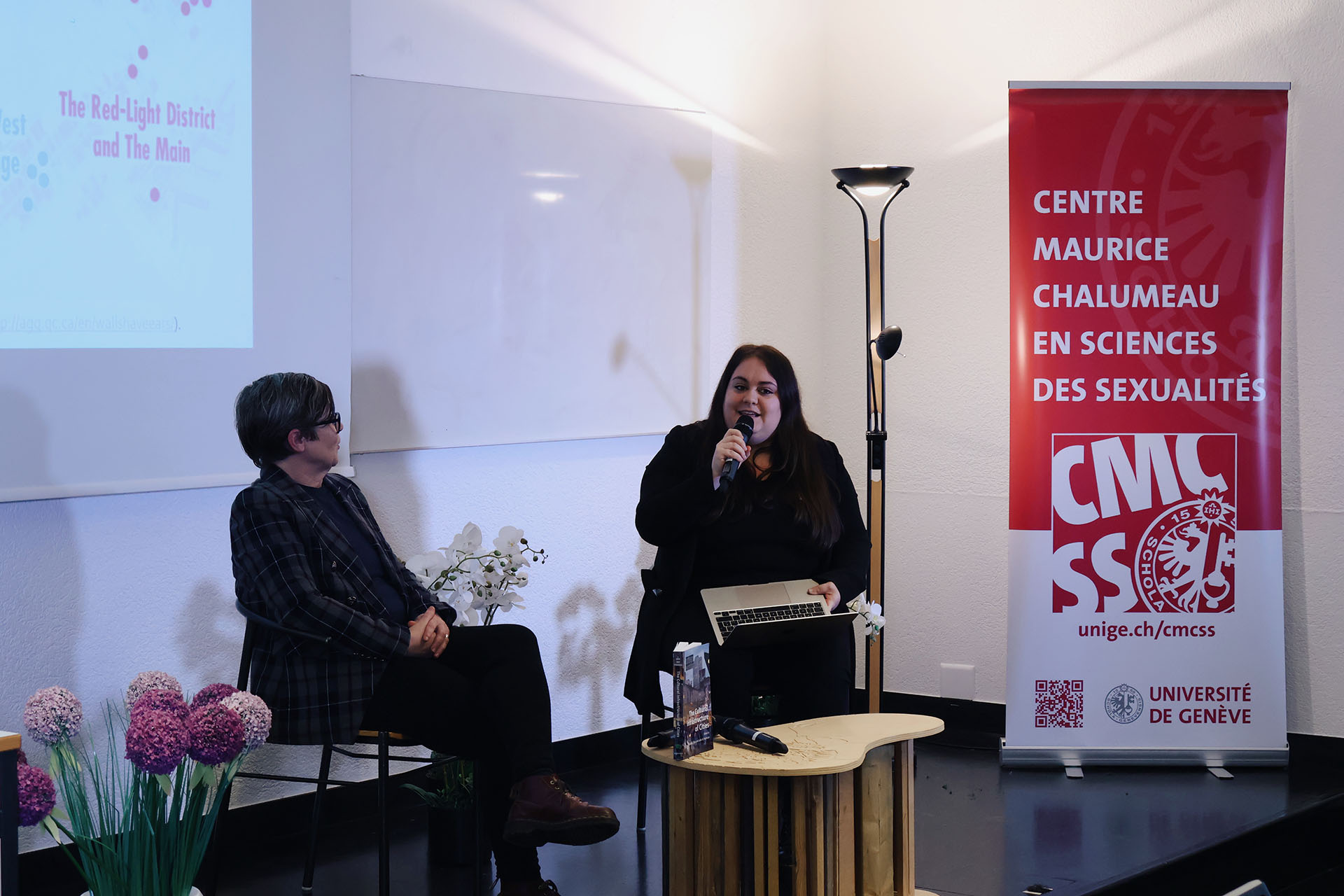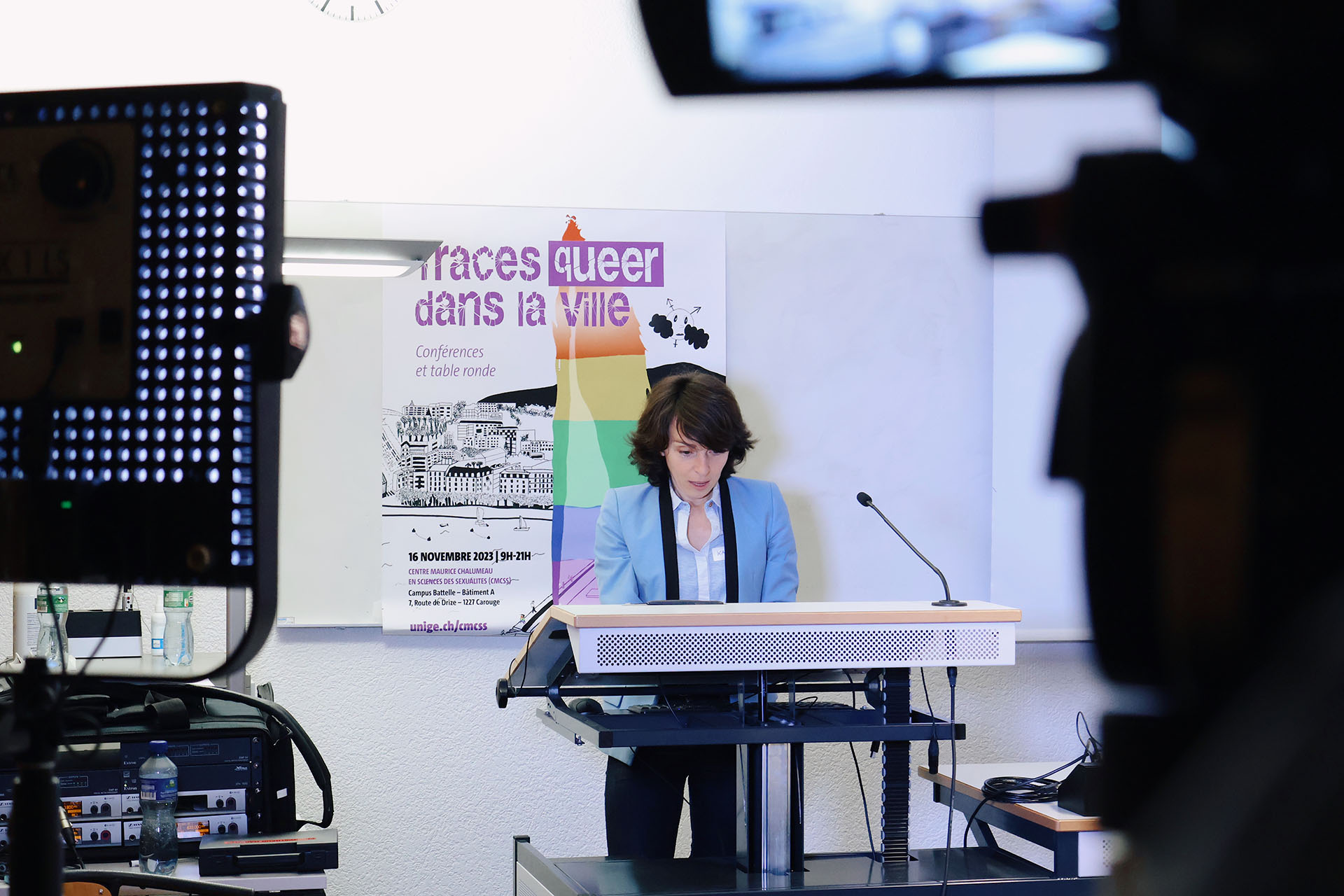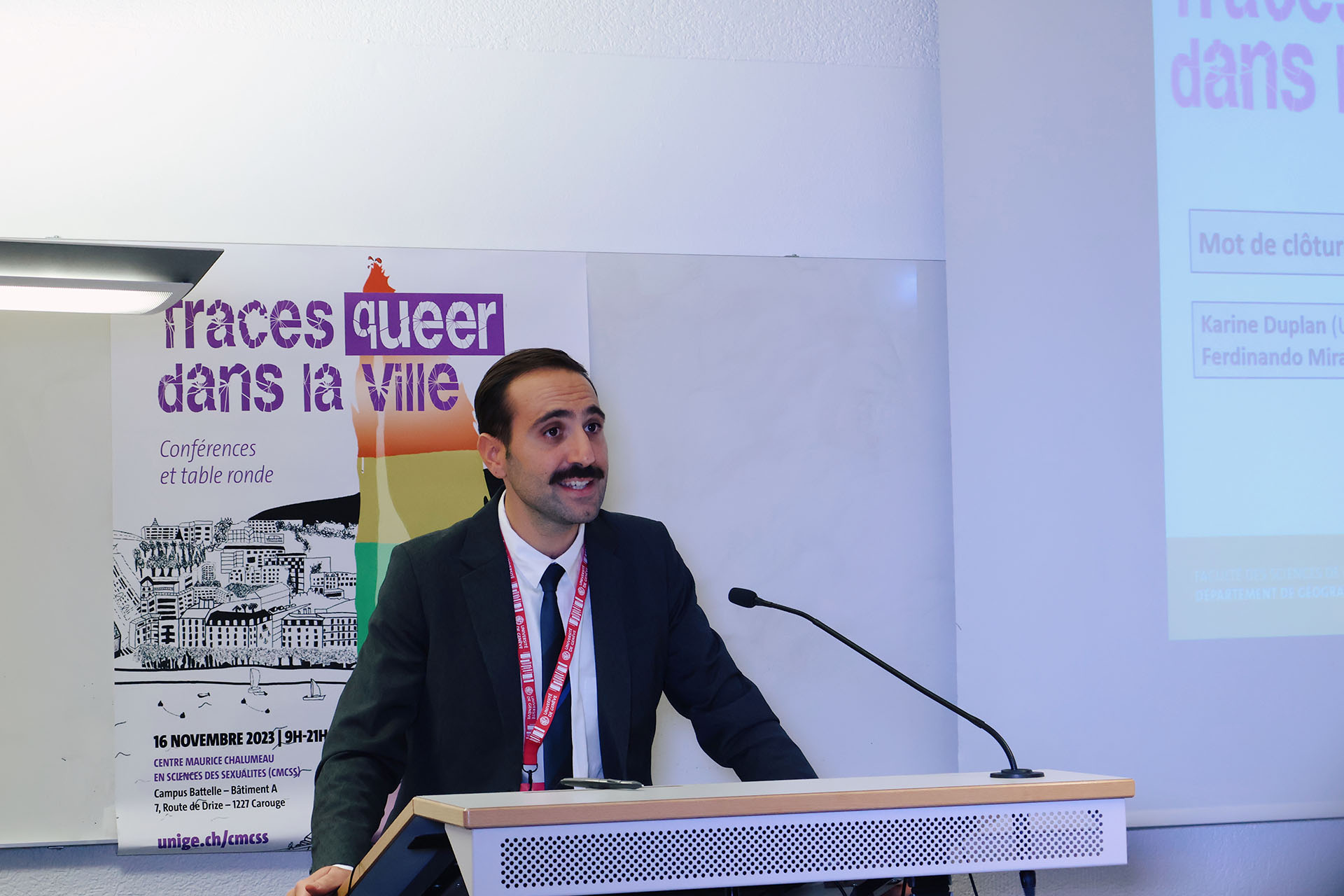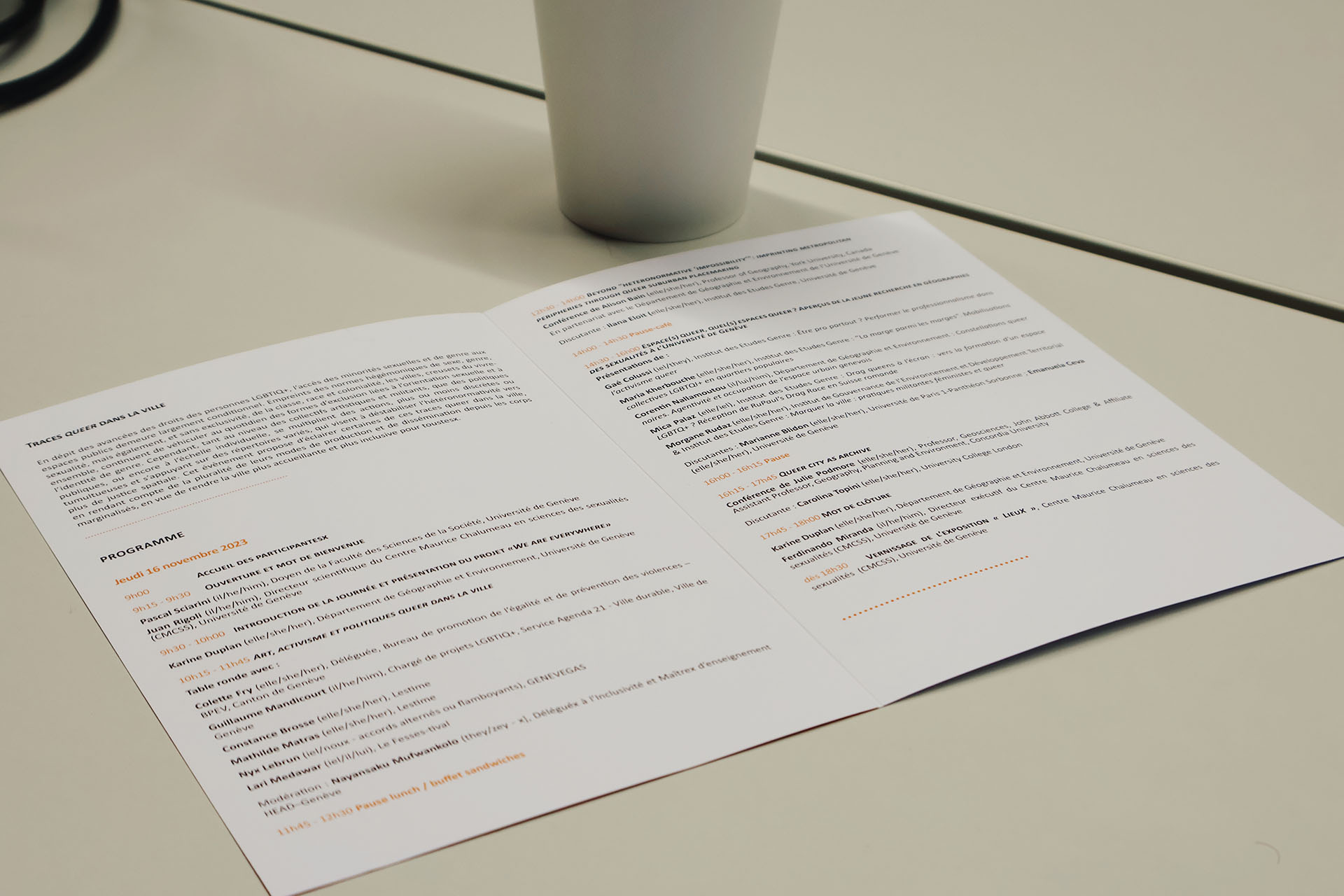9h00 | Accueil des participantesx
9h15 - 9h30 | Ouverture et mot de bienvenue
Pascal Sciarini (il/he/him), Doyen de la Faculté des Sciences de la Société, Université de Genève
Juan Rigoli (il/he/him), Directeur scientifique du Centre Maurice Chalumeau en sciences des sexualités, Université de Genève
9h30 - 10h00 | Introduction de la journée et présentation du projet "We are everywhere"
Karine Duplan (elle/she/her), Département de Géographie et Environnement, Université de Genève
10h15 - 11h45 | Table ronde : Art, activisme et politiques queer dans la ville
Colette Fry (elle/she/her), Déléguée, Bureau de promotion de l'égalité et de prévention des violences – BPEV, Canton de Genève
Guillaume Mandicourt (il/he/him), Chargé de projets LGBTIQ+, Service Agenda 21 - Ville durable, Ville de Genève
Constance Brosse (elle/she/her), Lestime
Mathilde Matras (elle/she/her), Lestime
Nyx Lebrun (iel/noux - accords alternés ou flamboyants), GENEVEGAS
Lari Medawar (iel/il/lui), Le Fesses-tival
Modération : Nayansaku Mufwankolo (they/zey - x], Déléguéx à l’Inclusivité et Maîtrex d’enseignement HEAD–Genève
11h45 - 12h30 | Pause lunch / buffet sandwiches
12h30 - 14h00 | Conférence : Beyond “heteronormative ‘impossibility’”: imprinting metropolitan peripheries through queer suburban placemaking, by Alison Bain (elle/she/her), Professor of Geography, York University
Conférence publique, en partenariat avec le Département de Géographie et Environnement de l'Université de Genève
Discutante : Ilana Eloit (elle/she/her), Institut des Etudes Genre, Université de Genève
In a suburbanizing world, where city-building is driven from the outside in and not as a linear extension of existing city centres, urban peripheries and their suburbs are complex sites of inhabitation. Yet LGBTQ+ liberation discourses, much like metronormativity, frame suburbs as sites of “heteronormative ‘impossibility’” (Halberstam 2005), fusing individual “coming out” processes with a discursive spatial imperative to “get thee to the big” (Weston 1995, 253) and “liberating” city, bypassing suburbia. To frame suburbs, however, as significant sites of queer placemaking locates LGBTQ+ communities and people in metropolitan time and space. This presentation approaches placemaking as an ongoing, complex, and localized process of socially constructing places through everyday practices that involve the (re)distribution of power, interaction, and representation between divergently positioned stakeholders, inside and outside of planning and public policy arenas (Seamon 2018). With its unsettling subversions, queer suburban placemaking involves alternate and unsanctioned planning, policy, infrastructure, and public space interventions that collide with the specificities and stigmatizations of places designed for heteropatriarchal nuclear family reproduction. Four key questions about placemaking frame the presentation: (1) Who makes place for LGBTQ2S people in suburbs, where, and how? (2) What forms of activism and institutional allyship exist and with what individual and collective placemaking impacts? (3) How do these actions transform the micro-public spaces of suburban everyday interactions that are the lived experiences of places? (4) How do LGBTQ2S suburbanites, therefore, produce liveable lives in place and dream queer suburban futures?
14h00 - 14h30 | Pause-café
14h30 - 16h00 | Présentations : Espace(s) queer, quel(s) espaces queer ? Aperçus de la jeune recherche en géographies des sexualités à l'Université de Genève
Gaé Colussi (iel/they), Institut des Etudes Genre : Être pro partout ? Performer le professionnalisme dans l'activisme queer
Maria Kherbouche (elle/she/her), Institut des Etudes Genre : “La marge parmi les marges”. Mobilisations collectives LGBTQI+ en quartiers populaires
Corentin Nallamoutou (il/lui/him), Département de Géographie et Environnement : Constellations queer noires. Agentivité et occupation de l'espace urbain genevois
Mica Palaz (elle/iel), Institut des Etudes Genre : Drag queens à l’écran : vers la formation d'un espace LGBTQ+ ? Réception de RuPaul's Drag Race en Suisse romande
Morgane Rudaz (elle/she/her), Institut de Gouvernance de l'Environnement et Développement Territorial & Institut des Etudes Genre : Marquer la ville : pratiques militantes féministes et queer
Discutantes : Marianne Blidon (elle/she/her), Université de Paris 1-Panthéon Sorbonne ; Emanuela Ceva (elle/she/her), Université de Genève
16h - 16h15 | Pause
16h15 - 17h45 | Conférence de clôture: Queer city as archive, by Julie Podmore (elle/she/her), Professor, Geosciences, John Abbott College & Affiliate Assistant Professor, Geography, Planning and Environment, Concordia University
Discutante : Carolina Topini (elle/she/her), University College London
This presentation examines how local LGBTQ+ community-based archival activists collect and organize knowledge to disrupt the ‘instituting imaginaries’ of official archives that frequently pathologize and erase their collective historical imprints on the city. Such archives provide the space for the collection, preservation and exhibition of affective memories of urban LGBTQ+ sites, enhancing societal visibility and community empowerment. Drawing on the conceptual frameworks of “counter-topography” (Katz 2004) and city-as-archive (Rao 2009), the presentation explores the relationships between community-based LGBTQ+ archival spaces, their collections of local queer memories, and queer urban cultural infrastructure. It examines how Montreal’s LGBTQ+ archival infrastructure supported digital and material mapping projects during and after the COVID-19 pandemic to bring communities, spaces and pasts together and build social connection. The paper then elaborates on the city-as-queer-archive concept and its potential to expand LGBTQ+ visibility and empowerment through the representation of collective urban memories. It cautions, however, that a reliance on digital mapping technologies can expose communities to violence and harassment while potentially reinforcing chronormativities of their own making by selectively documenting and reconstructing the past.
17h45 - 18h00 | Mot de clôture
Karine Duplan (elle/she/her), Département de Géographie et Environnement, Université de Genève
Ferdinando Miranda (il/he/him), Directeur exécutif du Centre Maurice Chalumeau en sciences des sexualités, Université de Genève
18h30 | Vernissage de l'exposition « LieuX » du CMCSS


